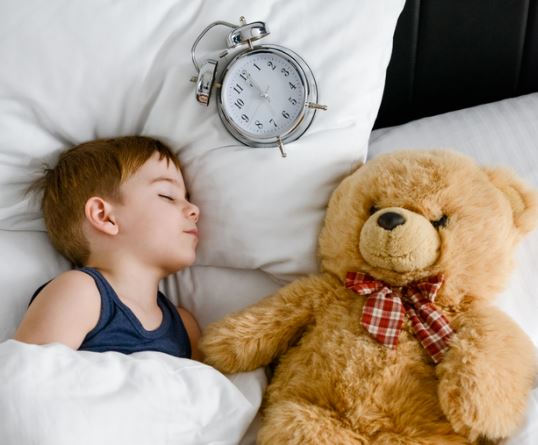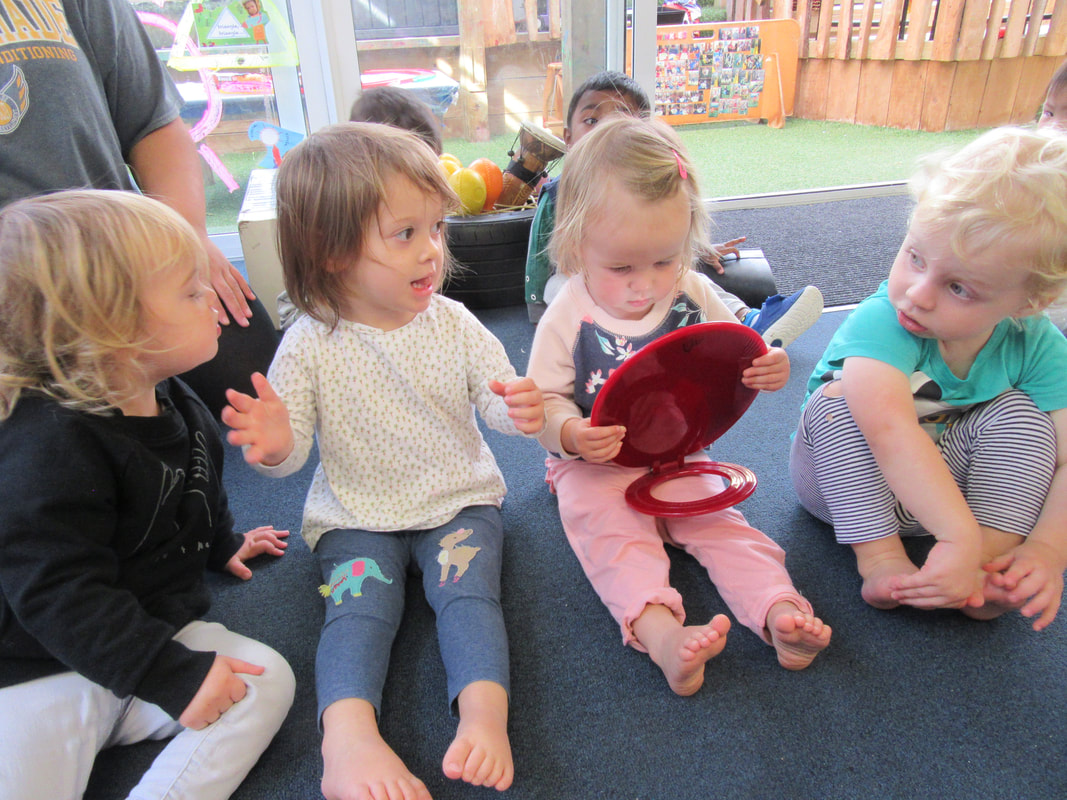Kids' Kampus
|
Getting quality sleep, night after night, is important for your little ones. However, research has found that as much as 30% of babies and toddlers have trouble getting the sleep they need. Healthy sleep habits set the foundation for the next day, and a well-rested toddler usually means less meltdowns.
When your child follows a bedtime routine, they’re more likely to fall asleep quicker and wake up less throughout the night. Adopting a good routine goes beyond helping them to wake up feeling happy and refreshed. Here are some other benefits of a bedtime routine for small children. 1. Adds predictability to their day Toddlers respond well to predictability, as it helps them feel safe and secure. When they’re constantly learning new things and taking in new experiences, it can feel overwhelming. A good bedtime routine gives your child’s mind time to rest, as it doesn’t need to be prepared to make sense of new activities. Following the same processes before lights out - such as rocking or nursery rhymes - lets your child wind down and get ready for sleep. 2. Nurtures your relationship Just before bed is an opportunity for some great one-on-one time with your toddler, without any of the usual distractions the day brings. It should be relaxing and enjoyable for both of you, and creating this space that your toddler looks forward to often means less resistance to bedtime. 3. Sets your child’s internal body clock Our circadian rhythm is our biological clock that lets us know when it’s time to sleep and wake up. The preparatory time before your child goes to sleep will signal to their mind and body that it’s time for bed, which in turn produces melatonin, the body’s natural sleep hormone. This helps them to nod off more calmly and easily. 4. Establishes healthy sleep habits Without a good bedtime routine, it can be difficult to set consistent sleep habits, which are important for your child’s mindset and overall health. Although your child’s bedtime will get later as they grow older, establishing good sleep habits from an early age is something they will take with them, so they’re able to fall asleep at a regular time each evening. 5. Helps your toddler (and you) to relax Your toddler is going through a major developmental stage, which can often be stressful and confusing. Providing them with stability throughout the day - including just before bed - can make them more resilient to things they’re unsure about. They’ll fall asleep more easily, which also means a more restful evening for yourself. Taking this essential time just for you usually means a better sleep, so you’ll wake up feeling more energised and ready for another busy day with your child. Kids’ Kampus' daycare centre is located in Mt. Eden, and we provide a quality environment for the little person in your life to flourish. To find out more about enrollment, get in touch on (09) 630 1454 or [email protected].
0 Comments
Teaching Toddlers to ShareLearning to share is a key part of the growing up process. It helps toddlers to make friends, play well with others, and learn about compromise and fairness.
Of course, sharing doesn’t always come naturally, and little ones usually need some extra encouragement to learn how to take turns with toys or share their goodies. Once they do get the hang of it, you can enjoy the peace of mind that they’ll head to pre-school or their childcare centre able to make new friends and play more harmoniously. Try out these tips to help your toddler or preschooler to learn the value of sharing. Lead by exampleBecome a role model at home by being prepared to share things with your child that you know they’ll enjoy - be it an ice-cream cone or anything else. Make sharing fun, by inviting them to “share” the couch with you to watch a movie or talk together. The more you share, the more influence your positive habits will have. Talk about sharing before a play dateMake sure your child understands how you expect them to behave before meeting up with friends for a play date. Talk to them about sharing their toys and remind them of the benefits of sharing. For example, let them know that their friend might feel left out if they couldn’t play together. Take extra toys with youIf you’re meeting up with your child’s friend, try taking a few toys with you - just in case the friend hasn’t fully grasped the concept of sharing. You could leave your child’s favourite toys at home, and just take those they’re happy to play with. This might encourage the other child to also share their toys, and the interaction will be more beneficial for both. Encourage cooperative activitiesStudies have found that children below the age of three don’t always do well in games that involve a single winner. Instead, try cooperative games or “make believe” games that aren’t overly competitive. Remember that “sharing” doesn’t always refer to toys. Encourage children to share in activities such as painting or puzzles, where they can learn to work together as a team. Start youngSharing often goes against a child’s instincts, and if a child isn’t ready to fully share just yet, try offering alternatives. It usually helps to start embedding the value of sharing from an early age. Once your little one is able to grasp objects, try passing them back and forth and say “my turn, your turn”. This helps them to realise that giving away their toy isn’t a permanent thing, and sharing means they’ll get it back and can enjoy playing with another child. Give plenty of praiseWhenever you notice your child sharing, respond with lots of praise and attention. You can do this when it happens, as well as after playtime to reinforce how happy you are with their behaviour. You could even point out good sharing in other people. For example, “It was very kind of Daisy to share her toys with you.” To find out more about what we do at Kids’ Kampus, please don’t hesitate to get in touch on (09) 630 1454 or [email protected] to schedule a time to visit. |
.Margie Blackwood, owner and Director of Kids' Kampus
April 2024
. |
|
Kids’ Kampus Childcare
50-52 Shackleton Road Mt Eden, Auckland 1024 New Zealand |
|








